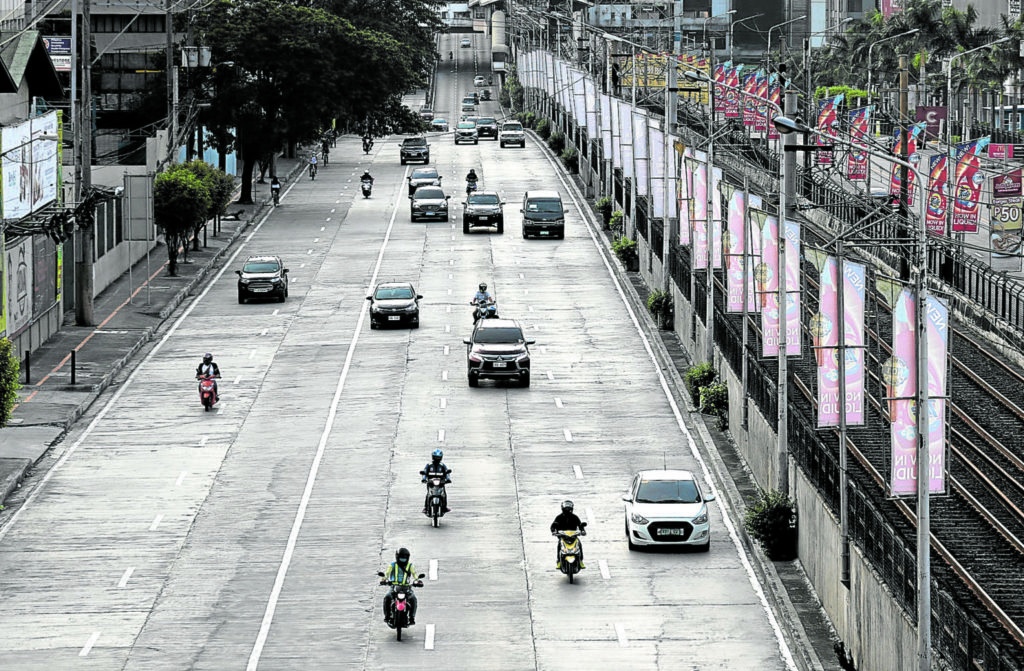Road user’s tax hike pushed

The motor vehicle user’s charge is an indispensable tool for the government to raise funds for infrastructure. | Richard Reyes
The motor vehicle user’s charge (MVUC)—whose proposed higher rate has been pending approval in the Senate—is needed to build and maintain more roads in the Philippines, the state-run think tank National Tax Research Center (NTRC) said.
Since the MVUC was implemented under Republic Act No. 8794 starting 2001, collections by the Land Transportation Office (LTO) from motor vehicle owners nationwide until 2017 totaled P159.1 billion, NTRC noted in a report titled “Administration and Disposition of the Road Tax Among Asean and Selected Countries.”
In turn, a total of P136.8 billion was released between 2002 and 2017 for construction, rehabilitation, repair and upgrades of roads, road drainage as well as bridges as mandated under RA 8794 passed in the year 2000.
From 2013 to 2017, MVUC proceeds funded 3,157 projects worth P56.4 billion.
Awaiting passage by the two chambers of Congress is the Department of Finance’s proposal to make the MVUC structure simpler while updating its rates to current prices.
Last March, the Lower House passed House Bill No. 6136, which will raise MVUC rates by more than 90 percent over a three-year period, beginning next year.
For NTRC, “road taxes remain the main source of revenue to provide sufficient and sustainable funding for the construction and maintenance of road networks, especially in countries which specifically earmark this fund source.”
“For the Philippines, MVUC remains an indispensable tool of the government in raising fund for road construction and maintenance. Earmarking of funds can be viewed as one of the ways to guarantee a steady and reliable funding source, most especially for priority programs such as road infrastructure,” NTRC said.
But NTRC warned against earmarking to specific road projects as doing so reduces budget flexibility as well as accountability and transparency, as what had happened to the Road Board, which was abolished last year following allegations of corruption and questionable use of MVUC funds.
“While earmarking can be one of the best ways to provide public service as it directly connects revenues to specific desired expenditures—in effect, financing road infrastructure, it could also be pointed out that the provision of earmarked fund for the purpose of road infrastructure makes the construction and maintenance of roads automatic. That is, the need for infrastructure is dependent on the earmarked fund and not on the program needs relative to road infrastructure.”
It added that this makes the system inefficient where earmarking could lead to financing of less important road infrastructure in one place over the more urgent need in other places. INQ
Disclaimer: The comments uploaded on this site do not necessarily represent or reflect the views of management and owner of Cebudailynews. We reserve the right to exclude comments that we deem to be inconsistent with our editorial standards.
